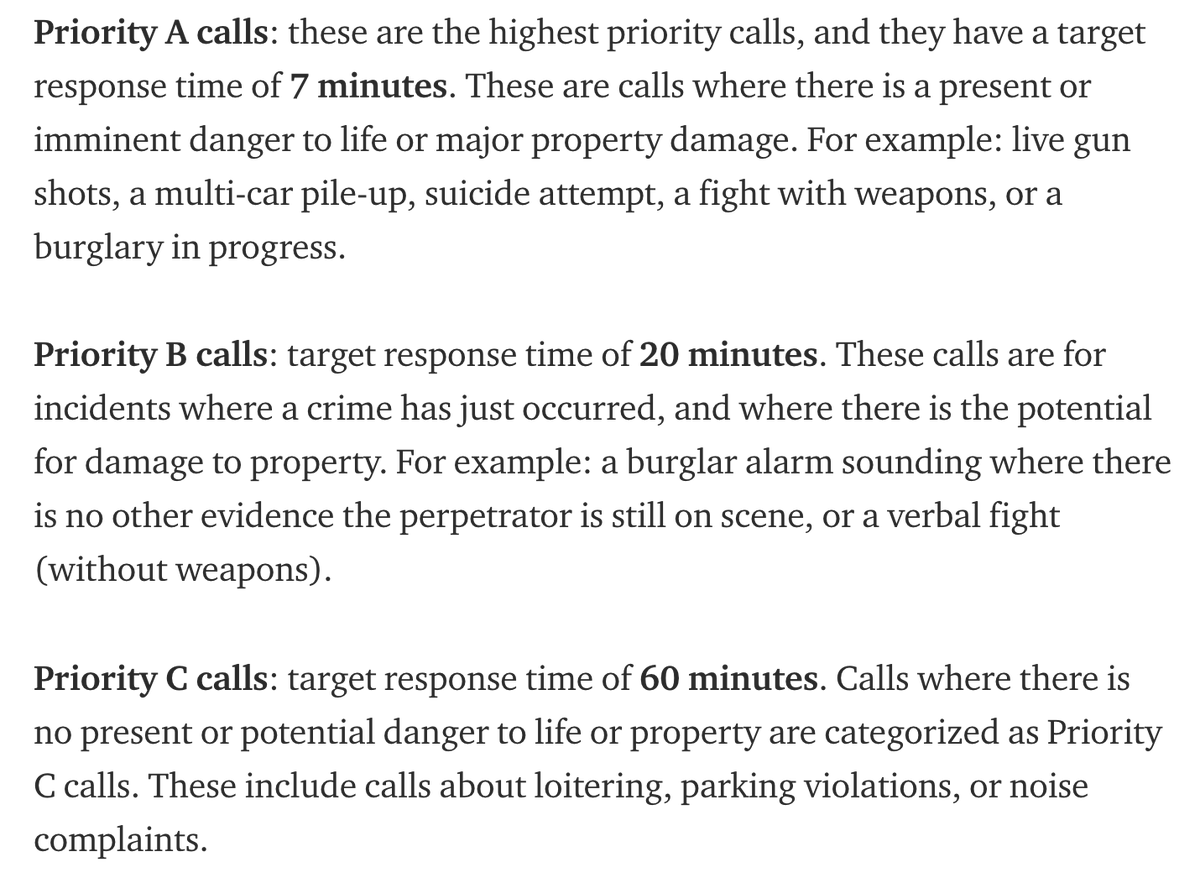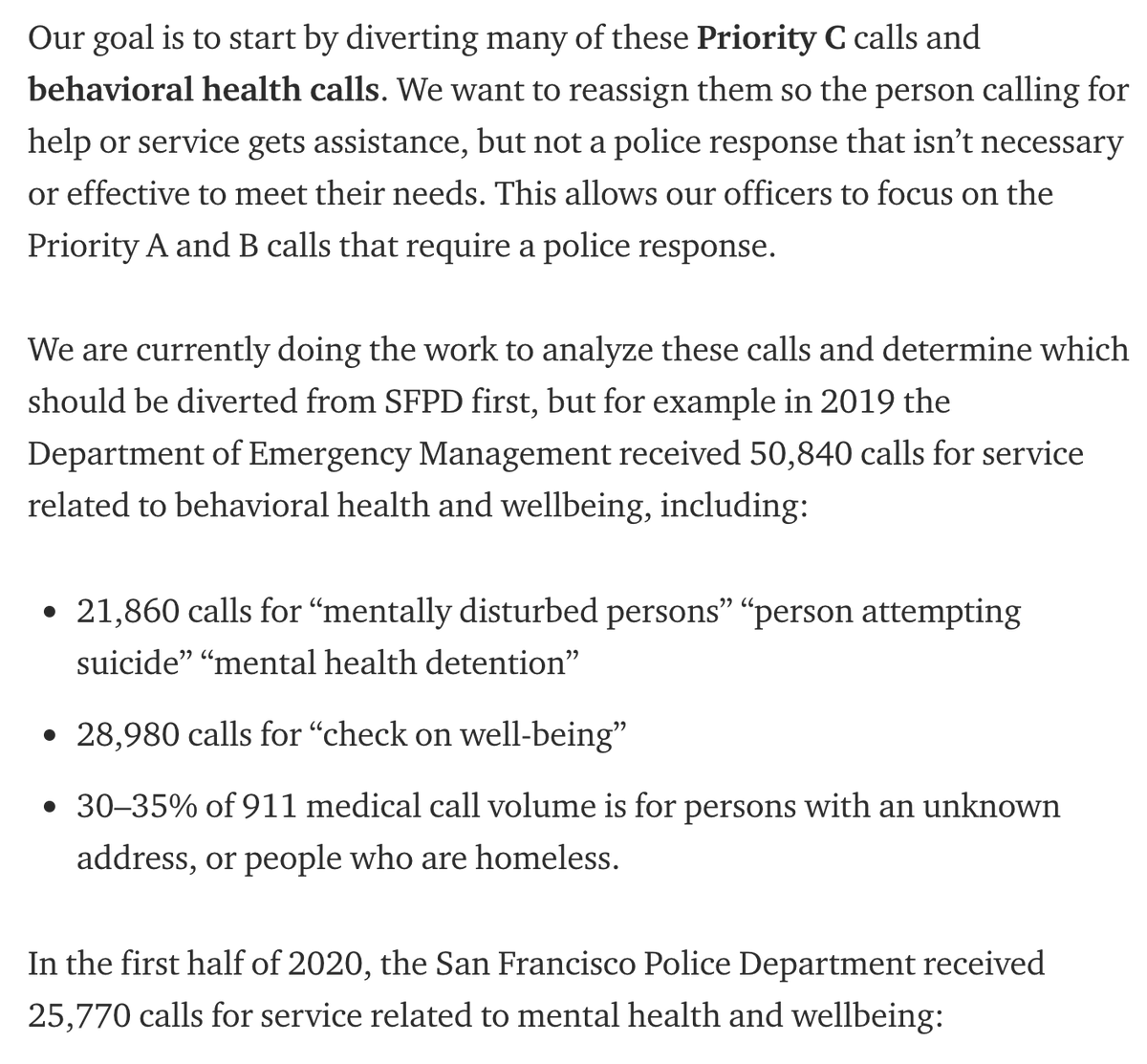Police officers aren't mental health professionals, they're not nurses, and they're not social workers. It’s a failure of our public safety and human services system that we expect them to be.
We need a better response to non-violent 911 calls. https://medium.com/@LondonBreed/alternatives-to-police-for-responding-to-non-violent-911-calls-44c7d40ad9b1
We need a better response to non-violent 911 calls. https://medium.com/@LondonBreed/alternatives-to-police-for-responding-to-non-violent-911-calls-44c7d40ad9b1
Moving this responsibility away from police will provide a more effective response for the person who called and it will free up our police officers to focus on more serious situations that should be handled by a police officer.
911 police calls get assigned one of three categories:
Priority A calls: Highest priority, present or imminent danger.
Priority B calls: Crime has just occurred, potential for damage to property.
Priority C calls: No present or potential danger to life or property.
Priority A calls: Highest priority, present or imminent danger.
Priority B calls: Crime has just occurred, potential for damage to property.
Priority C calls: No present or potential danger to life or property.
Right now, Priority C calls take longer to get a response than our stated goal of 60 minutes. Our goal over the next year is to divert many of these calls and calls related to behavioral health to teams that are more equipped to handle these situations.
This is not going to be easy and it is not going to happen overnight. It's a major shift in our approach as a city and it's important that we do the work to create a system that is efficient and effective. But we are committed, and I know we can do it.

 Read on Twitter
Read on Twitter



